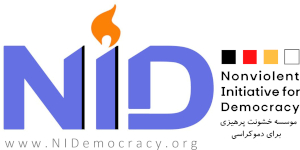In the 33rd week of civil protests against judicial reforms in Israel, women took to the streets in concern over their rights being curtailed by the religious right-wing government.
According to reports from the Institute for Democracy and Non-Violence and as cited by the media, on Saturday, August 20th, more than 100,000 individuals gathered in Tel Aviv to advocate for women’s rights. The protesting women held signs with the phrase “Israel is Not Iran.” In this Saturday’s demonstration, which has transformed into a hub of opposition to the hardline policies of the government, the focus was primarily on preserving women’s rights. Protesters held signs with messages such as “Hands off My Rights” and “Israel is Not Iran.” Widespread protests also took place in other cities across Israel.
The extensive demonstration of a hundred thousand people in Tel Aviv followed increased efforts by extremist factions to limit women’s presence in public spaces. Recent weeks have seen numerous reports about attempts to restrict women’s presence in public spaces in Israel. For instance, it was reported that in the city of Ashdod, a bus driver segregated a group of teenage girls to the rear of the bus and provided them with blankets to cover themselves. In another incident, a woman was allegedly prevented from boarding a bus altogether.
In the coalition government of Netanyahu, several staunchly conservative religious parties hold sway, advocating for greater gender segregation in public spaces and actively promoting such policies. However, after the Ashdod incident, Netanyahu declared, “Israel is a free country where nobody imposes restrictions on the use of public transportation or determines where anyone can sit.” He added that anyone engaging in such behavior must be held accountable.
Continuing these protests, another demonstration in defense of women’s rights is planned for the coming Friday afternoon in the religious city of Bnei Brak, near Tel Aviv.
For over 8 months, Israel has witnessed widespread protests against the policies of the Netanyahu government. In late July 2023, the Israeli parliament approved a portion of judicial structure reforms that limit the powers of the Supreme Court and the judiciary. The Israeli Supreme Court intends to address petitions to overturn the enacted law on September 12, roughly 20 days from now.
Critics view the actions of the Netanyahu government as a threat to Israeli democracy.



